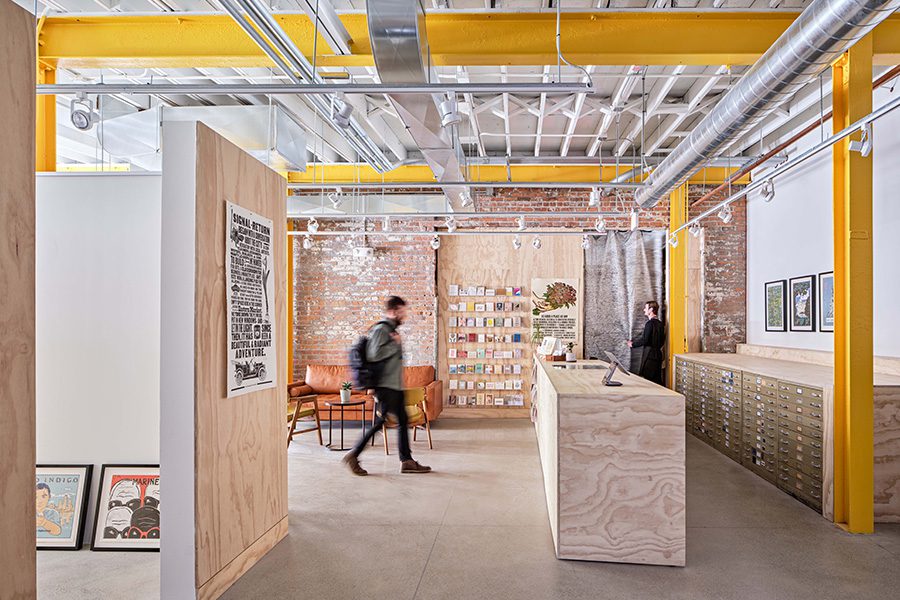
Five on Friday: May 24th, 2024
A beta hotel lab is experimenting in Berlin, details on the $1.85 billion Olympic Village in Paris emerge, and hotel PIPs are coming due. All that and more in this week’s Five on Friday.
OMA repurposes a Detroit bakery into a mixed-use creative hub
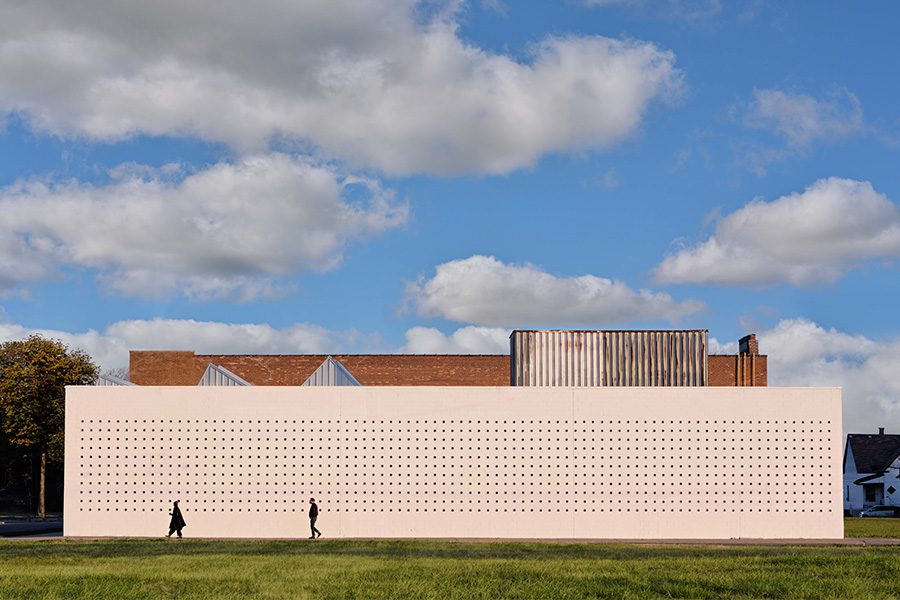
The Lantern creative hub in Detroit, designed by OMA; photo by Jason Keen
Designed by architecture firm OMA, the Lantern has opened in Detroit’s Little Village development—a neighborhood-wide initiative of arts group Library Street Collective. The 22,300-square-foot complex unites three buildings built between the 1920s and 1960s, including a former commercial bakery and a warehouse, writes Dezeen. Part of the brick ceiling in the center had crumbled, and OMA New York partner Jason Long decided to leave it open, creating an accessible community courtyard complete with terracotta bleacher steps and a white-painted lattice above that recalls the structure’s former metal rafters. The interiors maintain their industrial feel, with exposed brick, plywood framing and millwork, and I-beams painted a bright yellow hue. “We tried to work both with and against the former bakery’s solidity to make its transformation feel simultaneously familiar and mysterious,” Long said in a statement. “The result is a building that welcomes and emits light and creativity.” The Lantern is now home to two arts nonprofits, artist studios, a gallery, and 4,000 square feet of retail.
World’s first beta hotel lab launches in Berlin
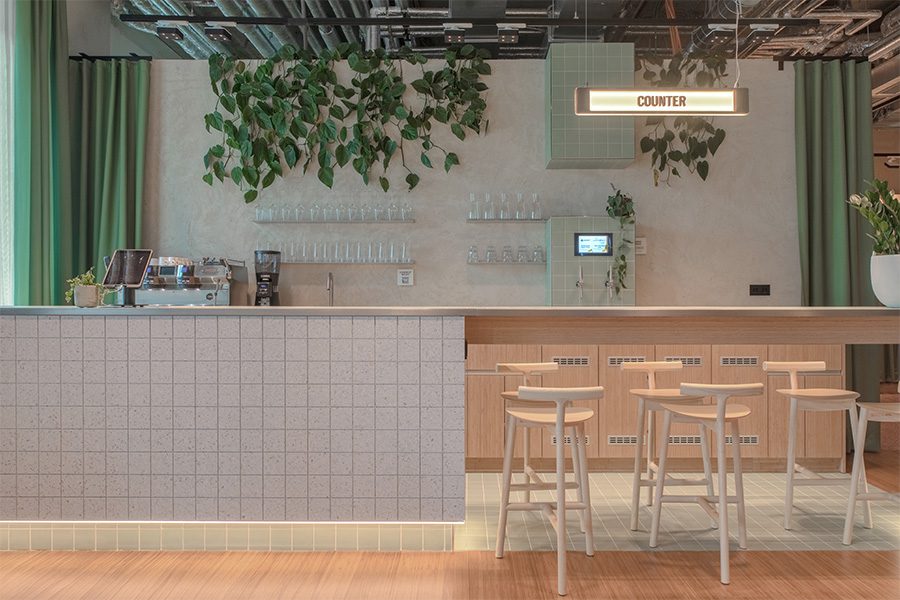
A café space at MM:NT Berlin Lab, designed by ACME; photo by Silke Briel
MM:NT Berlin Lab, a collaboration between Andina Hotels (owned by Australia’s TFE Hotels) and Häfele, centers on space-efficient design and guest feedback to inform the future of hospitality. A two-month experiment invites guests to stay for free in return for providing real-time evaluation of the hotel’s interior design, brand identity, and overall experience to help reshape future Andina hospitality projects. The public spaces and four standalone guestrooms influenced by micro living trends were handled by London-based design studio ACME, while Vienna-based BWM crafted a secondary room option incorporating spatial design and modularity. Häfele—a supplier of architectural hardware systems, furniture fittings, electronic access control, and LED lighting—has designed a third guestroom that showcases its technology. MM:NT is expected to fully open to the public next month.
5 facts about the Paris 2024 Olympic Village

Photo courtesy of Adobe Stock, generated by AI
Forbes has detailed a handful of details about the upcoming home of the athletes competing in the 2024 Paris Olympic Games, which kick off Friday, July 26th.
- The 130-plus-acre village is spread over three towns on the river Seine in northern Paris— Saint-Denis, Saint-Ouen and l’Ile-Saint-Denis—located to ensure Olympic and Paralympic athletes can train within 20 minutes of the site and compete within 30.
- The village, which cost an estimated $1.85 billion to construct, will be set up to provide 16,000 beds for some 24,000 athletes.
- Upwards of 40,000 meals are expected to be served daily. A massive canteen can seat up to 3,500 and will have a rotating menu with a French spin. And while no alcohol will be served onsite, multiple grab-and-go options will be available.
- Intended to be the most sustainable Olympic games ever, the buildings are designed to house local residents, with minimal refits, after the event is over. It also must conform to the 2016 Paris Agreement in terms of climate change goals.
- The remaining village will be a modern, mixed-use neighborhood for approximately 6,000 residents—with supermarkets, multiple green spaces, offices, transportation, and schools.
Time’s up on deferred hotel PIPs
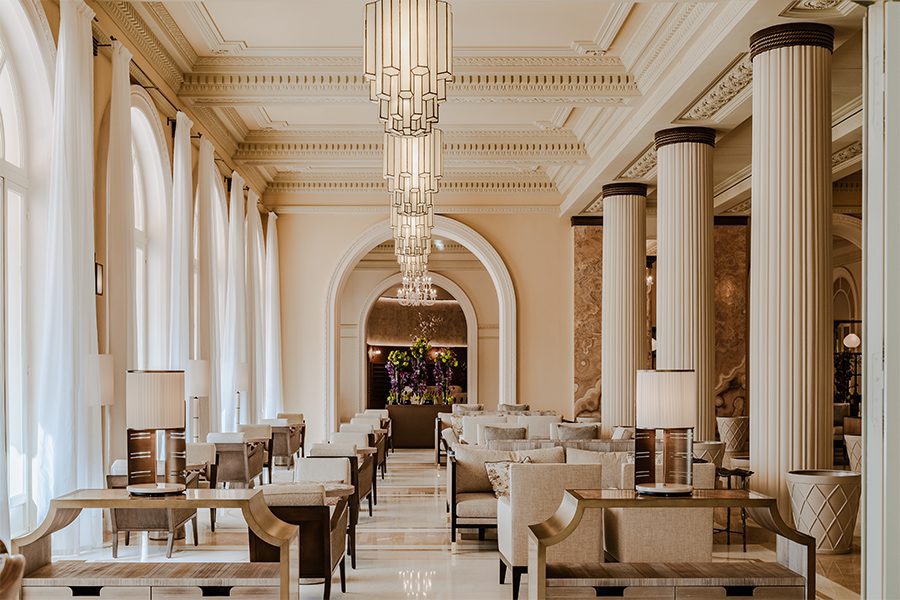
A lobby seating area at the recently renovated Carlton Cannes hotel; photo by Amaury Laparra
During the height of COVID, many hotel brands eased up on completing scheduled property improvement plans (PIPs) to save owners money as room occupancy plummeted. Now, as U.S. room demand has reached pre-pandemic levels in many markets, brands are back to enforcing PIP compliance, reports CoStar. “Everybody played very nicely in the sandbox during COVID, whether it was lenders, brands, or investors, because it was nobody’s fault. Those days are over,” said Daniel Lesser, president and CEO of New York-based LW Hospitality Advisors. Expenses might include upgrading soft goods and elevating F&B offerings, but also investing in technology offerings such as faster wifi and touchless check-in. “We’ve done a good job driving rate over the past few years, but to justify that rate, your products have to stay modern and up to speed,” added Davidson Hospitality Group COO Pete Sams. “And if you’re changing your flag, there’s an expectation of elevating your swim lane.”
HD’s CitySCENE takes on Miami and DC
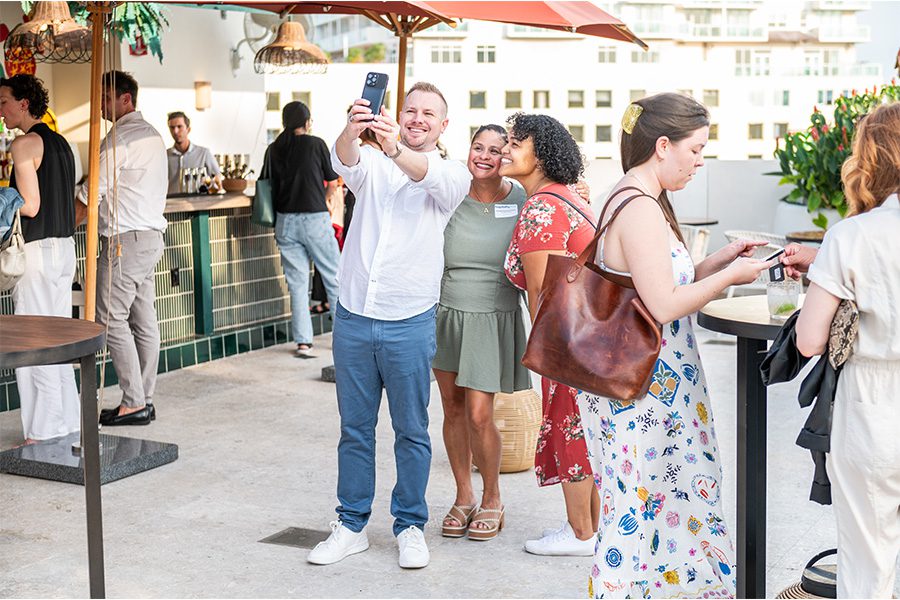
Attendees at last week’s CitySCENE networking event at Sipsip rooftop in Miami; photo by Michael R.
Hosted in various cities throughout the year, CitySCENE gatherings bring together up-and-coming and established hospitality professionals—including designers, architects, purchasing agents, brand executives, and owners—for a casual, fun evening of networking. Check out images from the most recent events: in Washington, DC at the Hotel Zena rooftop; and last week in Miami, where attendees enjoyed rooftop space Sipsip at the Mayfair House Hotel & Garden. Next up: Chicago (June 20th), Toronto (September 18th), New York (October 1st), and Dallas (December 4th). Hope to see you there!
The post Five on Friday: May 24th, 2024 appeared first on Hospitality Design.
